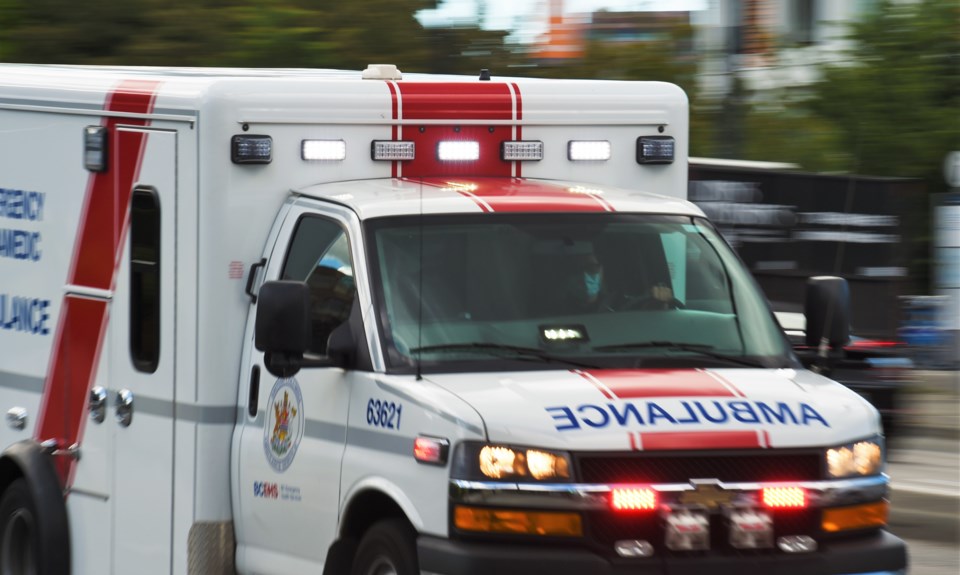Seven years into B.C.’s drug overdose crisis, the trends that have been reported across the province are also reflected on the North Shore.
“The North Shore is not immune,” said Dr. Alex Choi, the North Shore’s medical health officer.
As in the rest of B.C., a once-hopeful sign when drug overdose deaths dipped in 2019 was replaced in 2021 and 2022 with the highest number of overdose deaths ever.
“Starting in 2020, we started to see between 20 and 30 deaths [a year] on the North Shore,” said Choi.
There were 19 overdose deaths in North Vancouver last year, 18 the year before, according to statistics from B.C.’s Coroner’s Service. In 2020 there were 22. The statistics are similarly grim for West Vancouver’s smaller population, with seven overdose deaths last year, six in 2021 and six in 2020.
By the end of April this year, 11 people on the North Shore had died of overdoses.
Since 2018, there’s also been an increase in contamination of the drug supply that already contains fentanyl with benzodiazepines – drugs like Xanax, Ativan or Valium.
“What it can lead to is an increase in the impact of the opioid itself,” said Choi.
Choi said she sometimes hears questions about whether those dying of overdoses on the North Shore are people who actually live on the North Shore. Ninety-five per cent of people dying of overdoses here are North Shore residents, she said.
Some local statistics are similar to provincial ones, including that 85 per cent of those dying of overdoses are male, for instance.
But the people who are dying in North and West Vancouver, Bowen Island and Lions Bay are younger than the provincial average. Most are under 50.
The largest number – about 35 per cent of fatal overdoses – are among people 20 to 35 years old. That’s especially true of women who overdose, who tend to be in their 20s and 30s.
About 30 per cent are in the 46- to 55-year-old age group.
Most die in their own homes, where they’re living with their families.
“That’s quite different than the stereotype of what most people think about when they think about people who use substances,” said Choi.
In about 40 per cent of cases, their doctors didn’t know they were using drugs at all – an indication of the continuing stigma that prevents people from asking for help.
“I think you can see that really clearly on the North Shore,” said Choi.
About 60 per cent of those who died had no history of a previous overdose.
“So, this is quite different than some areas of province where we see that the people who are dying have had multiple overdoses,” said Choi.
It’s not hard to see why people don’t come forward. “Until recently, having even very small amounts of these substances was criminal. And many individuals were afraid to come forward for fear of legal issues.” That’s part of why possessing small amounts of the drugs was recently decriminalized.
Take-home naloxone kits are widely available on the North Shore. But because most people use drugs alone in their homes, Choi also urges users to get familiar with options like the Lifeguard app, which will automatically phone 911 if the user becomes unresponsive to an alarm.
In terms of treatment, people also need to know one size doesn’t have to fit all, she said.
While most people think of “detox” as happening at an inpatient clinic, there are also options for being prescribed opiate agonists like methadone and suboxone – which help reduce cravings – on an outpatient basis.
“For a lot of people, that treatment can be a more suitable option,” she said.
This article is part of an in-depth, provincewide journalistic effort by Glacier Media to examine the scope, costs and toll of the opioid and toxic drug crisis in British Columbia – a public health emergency that has taken at least 11,807 lives since 2016. If you or someone you know is in an emergency, call 911. If you need help with substance abuse, call the B.C. government's alcohol and drug information and referral service at 1-800-663-1441. It's available 24 hours a day.



